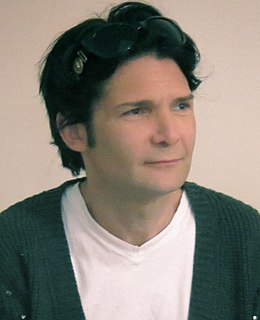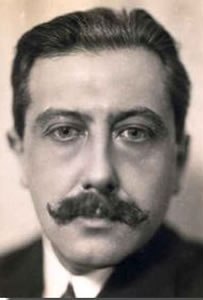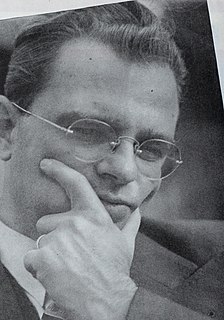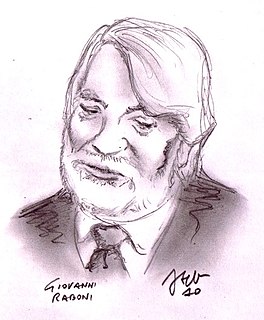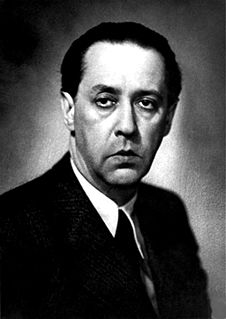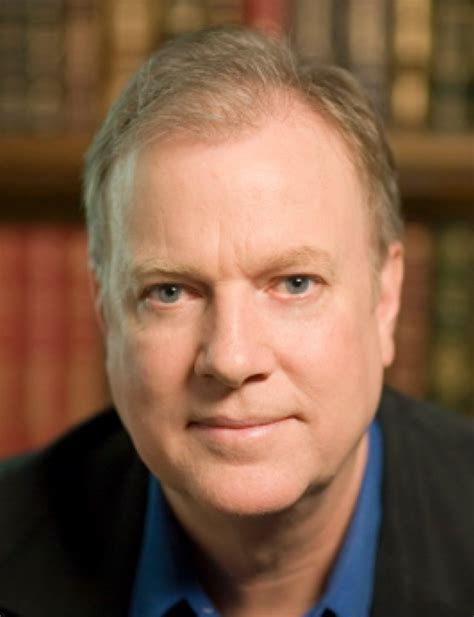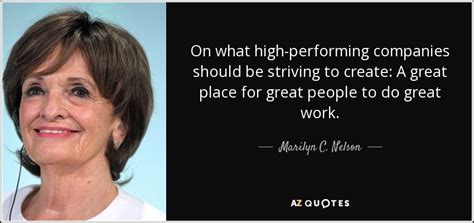Top 1168 Tension Quotes & Sayings - Page 18
Explore popular Tension quotes.
Last updated on December 12, 2024.
The tension to mother the "right" way can leave a peculiar silence within mother daughter relationships--the silence of a mother'sown truth and experience. Within this silence, a daughter's authentic voice can also fall silent. This is the silence of perfection. This silence of perfection prevents mothers from listening and learning from their daughters.
War over water would be an ultimate obscenity. And yet, unfortunately it is conceivable... Water has been a source over so many years of erosion of confidence, of tension, of human rights abuses, really, of so many in areas whose traditional water supplies have been controlled and depleted by occupational authorities. That must stop if we're going to be able to develop a climate for peace.
I like the idea of building the suspense and taking it all the way up to the very last second with the suspense, and right when you think you can't take it anymore, then you come in with the joke and kind of break the tension. To me, that's the best kind of film. I like thrillers, so thrillers with comedy, to me, is always the best.
I don't think that writing, real writing, has much to do with affirming belief--if anything it causes rifts and gaps in belief which make belief more complex and more textured, more real. Good writing unsettles, destroys both the author and the reader. From my perspective, there always has to be a tension between the writer and the monolithic elements of the culture, such as religion.
A dreaded society is not a civilized society. The most progressive and powerful society in the civilized sense, is a society which has recognized its ethos, and come to terms with the past and the present, with religion and science. With modernism and mysticism, with materialism and spirituality; a society free of tension, a society rich in culture. Such a society cannot come with hocus-pocus formulas and with fraud. It has to flow from the depth of a divine search.
The woman who needs to create works of art is born with a kind of psychic tension in her which drives her unmercifully to find a way to balance, to make herself whole. Every human being has this need: in the artist it is mandatory. Unable to fulfill it, he goes mad. But when the artist is a woman she fulfills it at the expense of herself as a woman.
Danger lurks when we divide ourselves with expressions such as "my private life," "my professional life," or even "my best behavior." Living life in separate compartments can lead to internal conflict and exhausting tension....Inner peace comes only as we maintain the integrity of truth in all aspects of our lives. When we covenant to follow the Lord and obey His commandments, we accept His standards in every thought, action, and deed.
Like the panic stricken populace of 'The War of the Worlds' and countless other 1950s invasion movies, the victims are there to provide the human ground over which monster and expert, threat and defender, disordering and ordering impulses can battle it out. Second-class citizens of the genre, they are narratively indispensable because physically entirely disposable. We are only really involved with them in the momentary tension of their capture or demise.
I believe in tension and release, in that if you stay in the the same tone and mode and intensity for too long, it actually becomes monotonous. When you change up your pace or your humour level, then the release is welcome... I believe that's my biggest job: tone control, and maintaining enough unity so that it all feels like one movie and all the scenes belong together, and yet diversity so that emotional and narrative interest is maintained.
People never grasp the fact that they're going to have to go through the same thing again. They get to the sort of five-year stretch or the seven-year itch or whatever these tension points are that seem to be organic, built in, like the tide coming in and going out. It's like every time the tide goes out you quit--you move your house or something.
All negativity is caused by an accumulation of psychological time and denial of the present. Unease, anxiety, tension, stress, worry - all forms of fear - are caused by too much future, and not enough presence. Guilt, regret, resentment, grievances, sadness, bitterness, and all forms of nonforgiveness are caused by too much past, and not enough presence.
Fascism, in so far as it considers and observes the future and the development of humanity quite apart from political considerations of the moment, believes neither in the possibility nor the utility of perpetual peace. It thus repudiates the doctrine of Pacifism - born of a renunciation of struggle and an act of cowardice in the face of sacrifice. War alone brings up to its highest tension all human energy and puts the stamp of nobility upon the people who have the courage to meet it.
So many forces and resources would become available if States, aware (or conscious) of their true (or real) mission, would want to get on (or agree) to abolish every politics aiming at ("visant à", Fr.) expansion or hegemony; system that maintain among nations a a perpetual distrust and tension, impose on them (or force or compel, "leur impose", Fr.) formidable armies and crushing war budgets.
Justice in the hands of the powerful is merely a governing system like any other. Why call it justice? Let us rather call it injustice, but of a sly effective order, based entirely on cruel knowledge of the resistance of the weak, their capacity for pain, humilation and misery. Injustice sustained at the exact degree of necessary tension to turn the cogs of the huge machine-for-the-making-of-rich-men, without bursting the boiler.
The first election in which all South Africans took part was in April, 1994. There were long queues [lines] of employers and employees, black and white. In the sense of Africans, Coloreds and Indians - when I talk about blacks, I mean those three. Blacks and whites mingled to vote without any hitches. Many people would have expected a great deal of tension, clashes and violence, but it did not occur.
Not to say that the process assumes anything of "greater" or "lesser" importance, though: it's just more graphic information. Take the surrealists, for example, or a work by Cage. For me, there's a great value in doing this with literature. There's a certain form of dependence; process and product inform each other, depend on each other. I consider myself a writer who doesn't write with a style, almost. I begin with tension, with a vibe, a character.
When we smile, the muscles around our mouth are stretched and relaxed, just like doing yoga. Smiling is mouth yoga. We release the tension from our face as we smile. Others who run into us notice it, even strangers, and are likely to smile back. It is a wonderful chain reaction that we can initiate, touching the joy in anyone we encounter. Smiling is an ambassador of goodwill.
The situation they [journalists and Edward Snowden] were in was incredibly heightened. The stakes were high. There was a lot of pressure, a lot of tension, a lot of sense of claustrophobic, clandestine energy that I think was exhilarating for us to explore and recreate. We were fortunate to shoot a fair amount of our stuff at the actual hotel where it all happened in Hong Kong. That added another element of very similitude to the situation, so I feel like it was exciting.
When you squeeze an orange, you'll always get orange juice to come out. What comes out is what's inside. The same logic applies to you: when someone squeezes you, puts pressure on you, or says something unflattering or critical, and out of you comes anger, hatred, bitterness, tension, depression, or anxiety, that is what's inside. If love and joy are what you want to give and receive, change your life by changing what's inside
Maturity is achieved when a person accepts life as full of tension; when he does not torment himself with childish guilt feelings, but avoids tragic adult sins; when he postpones immediate pleasures for the sake of long-term values.... Our generation must be inspired to search for that maturity which will manifest itself in the qualities of tenacity, dependability, co-operativeness and the inner drive to work and sacrifice for a nobler future of mankind.
People like her because she's like a breath of fresh air. Because in the fifth book it gets so dark and Harry's always cross and then every time Luna comes in all the tension goes and she makes you laugh because she's so funny and really honest. I don't know how much I'm like her, there are some similarities but I'm more determined than her.
The mind is a very intricate machine. It can store memories, past impressions, grudges, criticisms, judgments. It can hold a lot of stuff. In general, it's only really good at holding onto one thing at a time. Which is why, when we have a lot going on, we feel sort of stressed and we feel tension because the mind is busy trying to figure out what it should focus on first.
The best time to write is when your life is in the toilet. Writing offers an escape from your problems, so if you force yourself to write when you're in the doldrums, it will have the perverse effect of cheering you up. At the very least, it allows you to inflict your pain on your characters, which has the dual effect of giving them more depth while relieving your own tension.
My mom told us never to reveal that we were Shia in school. You would find out that some other kid was Shiite, and you would whisper, 'Hey,' or you would see someone at the mosque, and you'd be like, 'Hey, that kid's Shiite!' There was a lot of tension, a lot of violence in Karachi between Shiites and Sunnis.
Newness only becomes mere evil in its totalitarian format, where all the tension between individual and society, that once gave rise to the category of the new, is dissipated. Today the appeal to newness, of no matter what kind, provided only that it is archaic enough, has become universal, the omnipresent medium of false mimesis. The decomposition of the subject is consummated in his self-abandonment to an ever-changing sameness.
Ohm (a distinguished mathematician, be it noted) brought into order a host of puzzling facts connecting electromotive force and electric current in conductors, which all previous electricians had only succeeded in loosely binding together qualitatively under some rather vague statements. Even as late as 20 years ago, "quantity" and "tension" were much used by men who did not fully appreciate Ohm's law.
The self must be a tense bow. It must struggle with opposites rather than harmonize them, rather than turn the tension over to the great instruments of last manhood the skilled bow unbenders and Jesuits of our days, the psychiatrists, who, in the same spirit and as part of the same conspiracy of modernity as the peace virtuosos, reduce conflict.
If someone was to introduce hope and idealism into our political system, I think the tension that would create in other areas would certainly be ripe. You would think that if you bring oxygen to the organism, the organism lives. But there may be other organisms in there that thrive in darkness and in a more anaerobic environment. Watching those creatures writhe will always be interesting.
"Hard" science fiction probes alternative possible futures by means of reasoned extrapolations in much the same way that good historical fiction reconstructs the probable past. Even far-out fantasy can present a significant test of human values exposed to a new environment. Deriving its most cogent ideas from the tension between permanence and change, science fiction combines the diversions of novelty with its pertinent kind of realism.
From the beginning, there has been a tension in the reception of the Kantian idea of autonomy. If you emphasize the 'nomos' (the law), then you get one picture: the objectivity of ethics. If you emphasize the 'autos' - the self - you get the idea that we make the law. Kant never hesitated in his choice between the two emphases. He emphasizes the nomos (the universal and objective validity of the law).
As a social and as a personal force, religion has become a dependent variable. It does not originate; it reacts. It does not denounce; it adapts. It does not set forth new models of conduct and sensibility; it imitates. Its rhetoric is without deep appeal; the worship it organizes is without piety. It has become less a revitalization of the spirit in permanent tension with the world than a respectable distraction from the sourness of life.
A great discovery solves a great problem, but there is a grain of discovery in the solution of any problem. Your problem may be modest, but if it challenges your curiosity and brings into play your inventive faculties, and if you solve it by your own means, you may experience the tension and enjoy the triumph of discovery.
My theory for nonfiction is that nobody can be free of some kind of conceptions about whatever story they're writing. But if you can find a way to build those into the story, then the story becomes a process of deconstructing and heightening and sometimes changing those notions and that makes dramatic tension. The initial statement of your position, and then letting reality act on you to change it, is pretty good storytelling.
The greatest opportunities for creative transformation are often lodged in our discontents. Art is an alchemical process that feeds on emotional energy. When we realize that a perfect equilibrium in our lives might not be the best basis for making art, then we can begin to re-vision our stress points. So rather than try to rid your life of tension, consider doing something more creative with it.
When you forgive a person, what do you do? You accept the situation, to begin with. And secondly, you forgive what you think has been done wrong to you. But because nothing wrong can be done to your spirit, you just forgive because you are the spirit. And when you forgive, you have found that your tension goes away.
Well, I wanted to be a philosopher, which is the idlest occupation in the world. I wanted to be involved in abstract thought, but because of various problems with the authorities I wasn't able to pull that one off. A lifetime of idleness in academia would have really suited me. So I was thrown out, as it were. Other than that, there seemed no possible idle occupations, so writing . . . although writing isn't exactly idleness. There's an enormous tension between indolence and languor.
There's a great freedom of forms and intonations in Luigi Fontanella's poetry. He doesn't take a strong formal stand; his poetry entertains moments of nearly proselike colloquial narrative along with moments of powerful lyrical tension. There is a movement of extremes, from powerful tonality to near atonality, and I like this a great deal; it's a stance that very effectively catches the spirit that makes work in poetry possible nowadays.
Elements within Malcolm's X own entourage, some of them were very angry with some of the changes that had occurred with Malcolm. One source of anger, curiously enough, was that - was the tension between MMI and OAAU, that the MMI, the Muslim Mosque Incorporated, these were women and men who had left the Nation of Islam out of loyalty to Malcolm, but then Malcolm continued to evolve rapidly.
I was worried that I, the artist Morimura, would have conflicts with the participating artists and develop a strenuous relationship with them. But the actual experience was completely the opposite. The artists accepted my requests rather positively, because it came from a fellow artist. I strongly feel that the fact that my being an artist avoided the usual curator vs artist tension, and led to creating a positive atmosphere as well as developing a solidarity amongst artists and building a community for artists.
I'd love if people relearned the lessons of the 20th century all over again. Which is to say this country progressed economically and socially when we had a better balance between capital and labor. Neither capital or labor won every argument. The battle between the two created economic tension, and transformed the working class into the middle class, and grew the economy.
Every time is a time for comedy in a world of tension that would languish without it. But I cannot confine myself to lightness in a period of human life that demands light. We all know that, as the old adage has it, "It is later than you think." But I also say occasionally: "It is lighter than you think." In this light let's not look back in anger, or forward in fear, but around in awareness.
I don't know what it is about human beings but most of us really like reading about or observing sexual tension and romance. It's just so much fun. I don't know if there is some Darwinian thing in us that really responds to that, but I think the most memorable scenes to me in books and movies are the ones where a couple is about to kiss.
My body has taught me many things, all of them filled with soul: how to dance and make love, mourn and make music; now it is teaching me how to heal. I am learning to heed the shifting currents of my body-the subtle changes in temperature, muscle tension, thought and mood-the way a sailor rides the wind by reading the ripples on the water.
In the province of Quebec where I come from, we speak French and the only cosmopolitan city is Montreal. Every time we tackle the subject of immigration and racial tension, it's an issue that concerns Montreal. Also, in Quebec, we have this added issue that we want people to speak French, because French is always on the verge of disappearing to some extent. I work, play and do everything in French.
And I've been waiting for you, because I couldn't do anything else. And we've both known that we would meet again, and then it would be all over with life and everything that gave our existence meaning and tension. A secret of the kind that lurks between the two of us has extraordinary power. It burns through the fabric of life like a scorching beam, and yet at the same time it also gives it tensile strength. It forces us to live.
In positive terms, we can state that psychological maturity entails finding greater satisfaction in giving than in receiving; having a capacity to form satisfying and permanent loyalties; being primarily a creative, contributing person; having learned to profit from experience; having a freedom from fear (anxiety) with a resulting true serenity and not a pseudo absence of tension; and accepting and making the most of unchangeable reality when it confronts one.
Death is not earnest in the same way the eternal is. To the earnestness of death belongs precisely that remarkable capacity for awakening, that resonance of a profound mockery which, detached from the thought of the eternal, is an empty and often brash jest, but together with the thought of the eternal is just what it should be, utterly different from the insipid solemness which least of all captures and holds a thought with tension like that of death.
I have touched here on a problem that is masked if one speaks of racism. And that is the fact that the major differences between the established and outsiders group, which create tension and irritation, is not the form of the face or the skin color but the form of behavior: something learned. The form of behavior and feeling, of sentiment, is different in the immigrant groups from that of the established groups, and that may give rise to an enormous irritation.
Obama is now fighting for his life. He's fighting for a federal government. I believe in a federal government. I hope it sticks around. We had the American Revolution. There was this whole tension between the federalists and the anti-federalists. Then we had the Civil War. We had Lincoln fighting for it. And the secessionists were there. And we have the same issue today.
By these pleasures it is permitted to relax the mind with play, in turmoils of the mind, or when our labors are light, or in great tension, or as a method of passing the time. A reliable witness is Cicero, when he says (De Oratore, 2): 'men who are accustomed to hard daily toil, when by reason of the weather they are kept from their work, betake themselves to playing with a ball, or with knucklebones or with dice, or they may also contrive for themselves some new game at their leisure.'
Many writers struggle with exposition in their novels. Often they heap it on in large chunks of straight narrative. Back story – what happens before the novel opens – is especially troublesome. How can we give the essentials and avoid a mere information drop?
Use dialogue. First, create a tension-filled scene, usually between two characters. Get them arguing, confronting each other. Then you can have the information appear in the natural course of things.
I have thought of a pulley to raise me gradually; but that would give me pain, as it would counteract my natural inclination. I would have something that can dissipate the inertia and give elasticity to the muscles. We can heat the body, we can cool it; we can give it tension or relaxation; and surely it is possible to bring it into a state in which rising from bed will not be a pain.
I feel constantly the tension of the quarterly cycles, the drive to produce shareowner value at the cost sometimes of customer value and employee value. [But] if you take equal care of the employees, they will take equal care of the customers and then we will get an equal or better opportunity for our shareowners.
My book in a nutshell is about the deleterious effects of patriarchy down through the ages for women and for men and how the Bible dismantles this fallen social system. I'm completely persuaded that patriarchy is not the Bible's message, but that it runs counter to God's vision for humanity. It produces tension and disunity between men and women that run contrary to God's vision for his world.
I think we are living in an era of being hyper-concerned about, Is it us? Because we have this historical awareness. People really want to know: will it be us or our kids or our grandkids to live through this? We don't want it to happen, we don't want to be the ones with the poisoned water, but at the same time, I think there is this curiosity, like, Am I one of the "lucky" ones who gets to be here at the end? That's the tension I'm interested in.
You've been somebody long enough. You spent the first half of your life becoming somebody. Now you can work on becoming nobody, which is really somebody. For when you become nobody there is no tension, no pretense, no one trying to be anyone or anything. The natural state of the mind shines through unobstructed - and the natural state of the mind is pure love.


